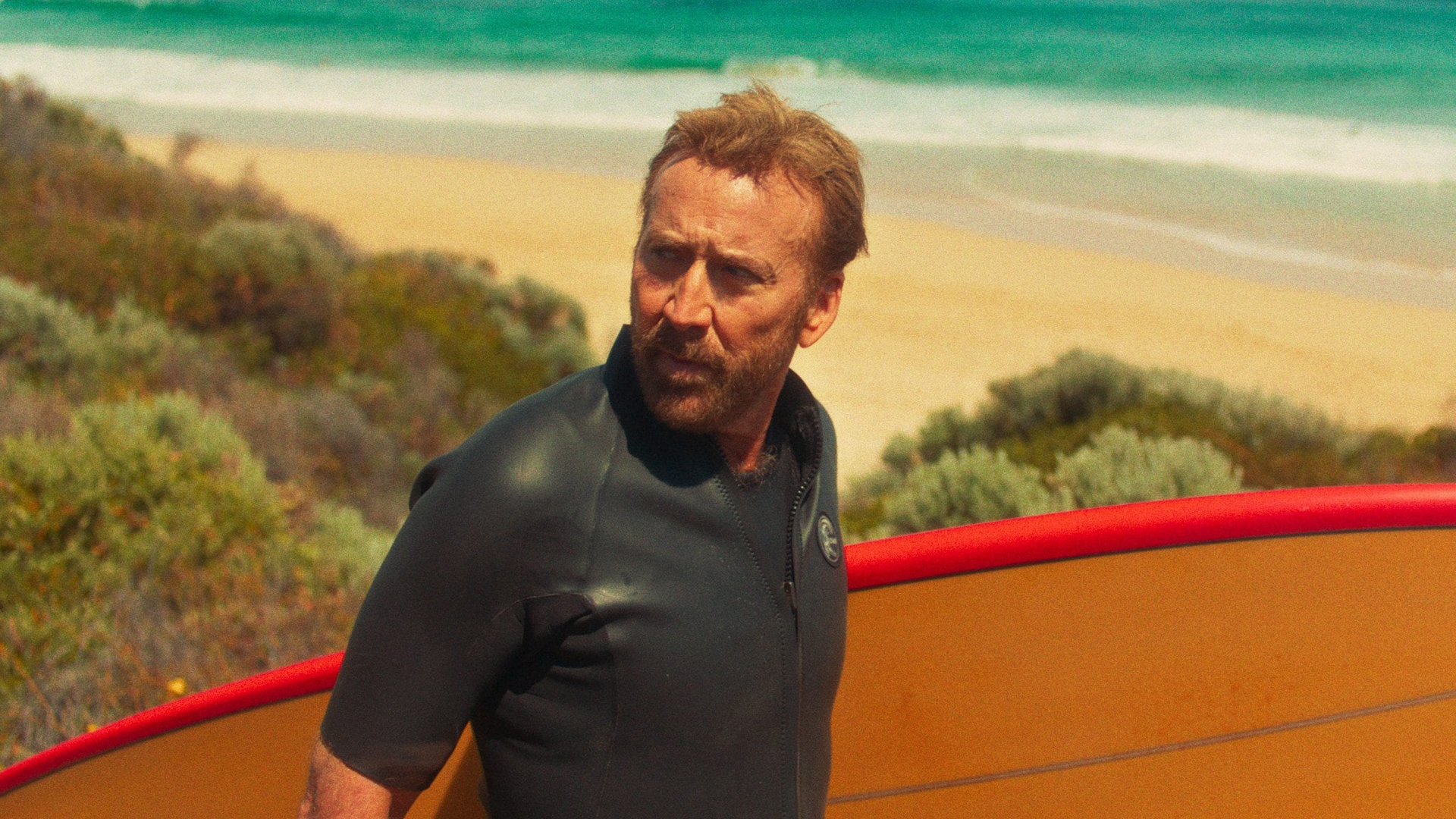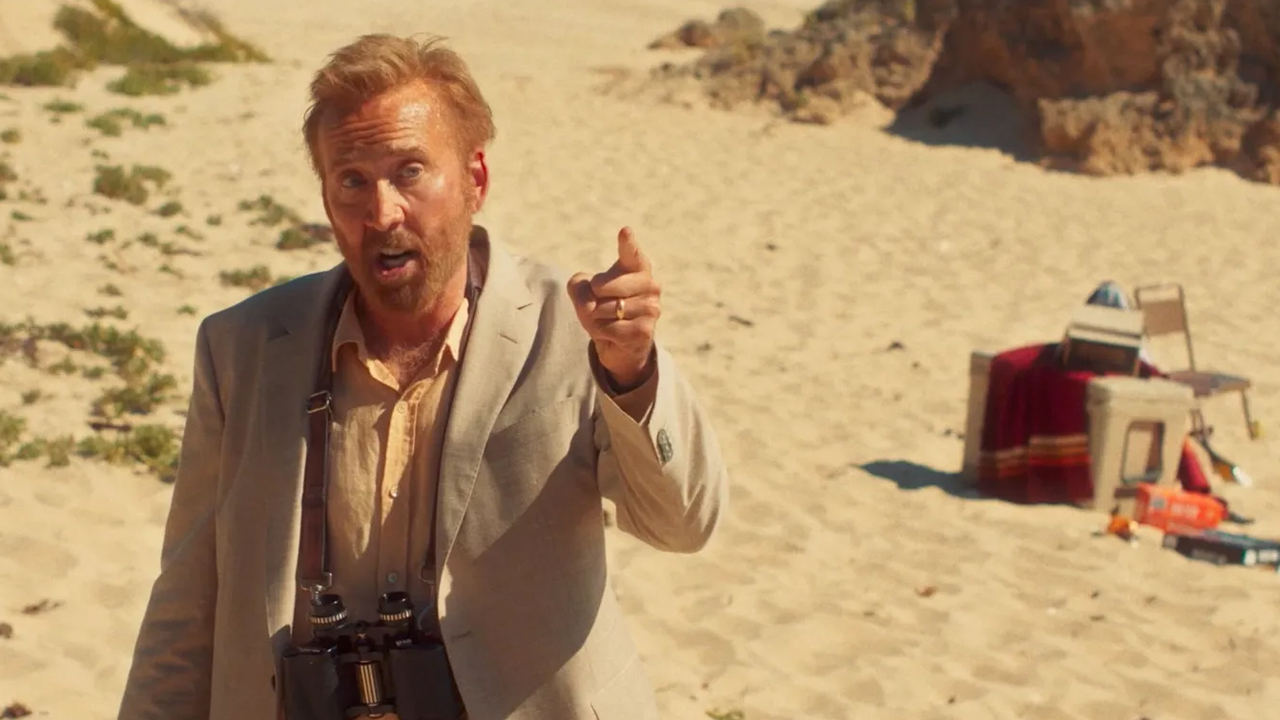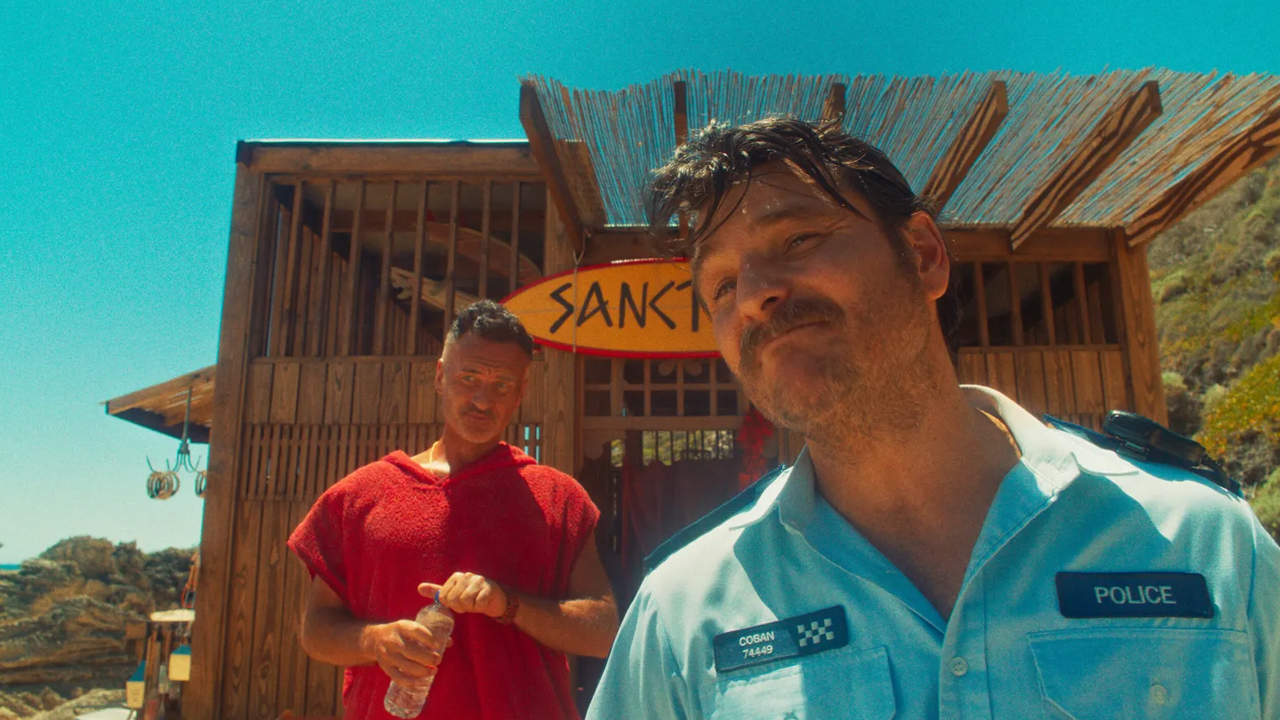Cannes review: It’s Nicolas Cage versus aggro Aussie locals in The Surfer

Nicolas Cage stars in this comic thriller, from the director of 2019’s Vivarium, as a man humiliated when he goes to the wrong beach. Rory Doherty hangs loose with the pic at Cannes.
Warning: do not watch The Surfer if you want to see Nicolas Cage catch some gnarly waves for 99 minutes, as he spends the entire film being denied the ability to surf. However, if you’re interested in seeing the maddening effects of being stuck in a car park on some unnamed part of Australia’s coast, suffered exclusively by Nicolas Cage, then you’re much more suited for the film.
On this scale of bitter disappointment to complete and utter satisfaction (which all movies should be graded on), Lorcan Finnegan’s comic psychological thriller ranks somewhere in the “good but should have been better” region. The Surfer is a film with better films on its mind, and a terrific goal in its sights, but while the descent into Aussie coast mania is right to prioritise the journey over the destination, the conclusion lacks the satisfying catharsis that you’ve been itching for with every misunderstanding, misfortune, and misery wreaked upon our dear Cage.

Nicolas Cage plays a man credited only as “the Surfer”, a wealthy Australian-born executive who lived his post-childhood years in America. He now wants to buy his late father’s former beach-front property to show his son (Finn Little) and ex-wife his dedication to being in their lives, as well as providing for them the location he remembers so fondly—even if dark memories cloud the last months he spent there. But when he drives his son down to his childhood beach and they’re turned away from the shore by an aggressive band of bullying, localist men, the Surfer is left humiliated and rattled. More films should centre grown men being embarrassed as their inciting incident.
Shocked at the gang-like resistance he faced on the beach, and with his precious surfboard stolen and proudly displayed by the thugs led by the smiley, menacing corporate guru Scally (Julian McMahon), the Surfer makes moves trying to amend his injustice. But every step he makes trying to restore order is pushed back tenfold by the surfer cult: his car is vandalised, a public water fountain is soiled with dog faeces, and worst of all, his delicious pizza is ruined.
Attempts to call in police intervention (played with delicious attitude by Justin Rosniak) only reveal how chummy Scally is with law enforcement. On top of this deliberate sabotage, often carried out by Scally’s youngest and most bullish cohorts, environmental misfortune piles up too; without power to charge his phone, the Surfer’s time-sensitive contact with his real estate broker is threatened.

In a systematic and procedural series of events, the Surfer falls into destitute vagrancy, mirroring the lifestyle of the resident “Bum” (Nicholas Cassim) in the car park, whose mania about the danger Scally inflicts on outsiders soon becomes the Surfer’s own. It’s always a pleasure to see a protagonist lose touch with reality, even more so if the character is played by Nicolas Cage, but while the script by Thomas Martin deploys comic adversities and stake-raising obstacles at a decent pace, there’s a palpable sense that we’re enjoying well-worn narrative devices being effectively used rather than truly feeling the Surfer’s torment from the inside.
Lorcan Finnegan, who previously directed suburbia horror Vivarium, shows he has the right instincts for sun-soaked psychological thrillers: plenty of knowing zooms on Nic Cage’s baffled face, an aggressively saturated colour palette, cranking up the volume on François Tétaz’s old-school, appropriately-overbearing suspense film score. But The Surfer struggles to break out of the mould of imitation—everything feels a little too carefully composed and arranged to match the sweaty and short-breathed voyeurism of New Wave classics like Wake in Fright or The Last Wave. The Surfer is far too knowing a throwback to ever grasp the sincerity of these films from the 70s Aussie film movement; the priority is not to shake us to our core, but to entertain.
Still, The Surfer makes for an effective and efficient caper, even if the sub-100-minute runtime wastes a minute or two on a few of the downward motions of the Surfer’s psyche. It’s good to see Cage relishing his part—we know very well he’s perfect as someone losing grip with reality, though the early scenes calling for straight-faced normalcy are overegged too much when the strangeness should be entirely coming from his environment.
Where The Surfer most egregiously stumbles is its denouement—Finnegan’s film wisely changes up the Surfer’s predicament regularly, but the climax relies on external agents to resolve the Surfer and Scally’s intense conflict, leaving the Surfer to stare meaningfully at the action rather than take an active role in it. Despite its game energy, The Surfer feels more compelled to tell a type of story rather than make this one truly count.
















